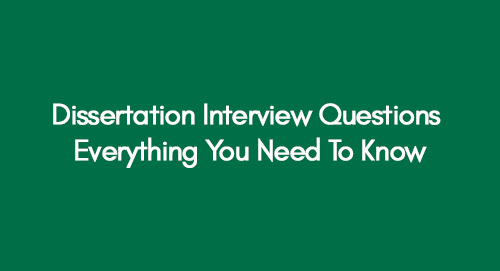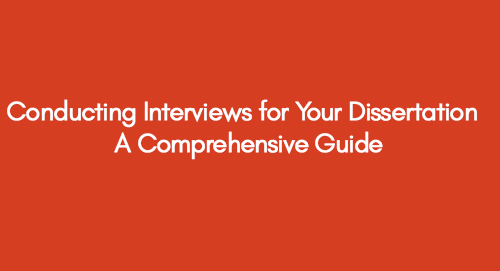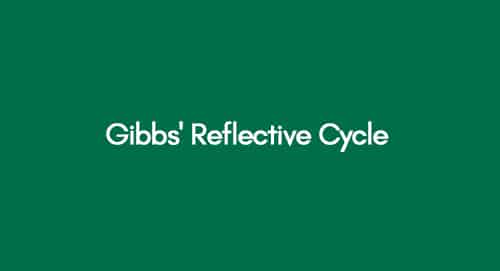
How to Write a PhD Proposal? From Proposal to Funding
October 20, 2022
How to Write Academically: A Guide to Writing Clear, Concise, and Persuasive Writing
October 25, 2022A research project is an assignment that requires students to conduct independent research on a topic of interest. The purpose of a research project is to encourage students to keenly investigate a topic and develop their own opinions about it. Most research projects are assigned to upper-level high school or college students. However, some elementary and middle school teachers may assign research projects to introduce students to the scientific method.
Explore Our Current Dissertation Topics Here
Learn More Through Dissertation Examples Here
Research projects typically involve writing a paper or creating a presentation, although some teachers may require students to complete both tasks. Students usually have flexibility in choosing their topic, although the teacher may specify focus areas. The length of the research project will vary depending on the course requirements, but most papers are between five and ten pages long.
Get 3+ Free Custom Topics within 24 hours;
How to Start Your Research Project?
Starting a research project can be tricky sometimes. Reviewing your research topic with your peers is excellent if you have decided on your research topic. Early feedback will help you conduct your research efficiently with clear goals.
Here's how to start working on your research chronologically.
- Define your research question(s)
- Find relevant sources and take notes
- Develop a thesis statement
- Create an outline for your paper
- Write your paper, including an introduction, body paragraphs, and conclusion.
- Before submitting, edit and proofread your paper.
Learn About Research Design for Dissertation
Explore Research Strategy for Dissertation
Define Your Research Question(s)
As you start your research project, it is essential to take some time to define your research question clearly. It will help to focus your research and ensure that you collect relevant data. Keep in mind that your research questions should be specific and achievable. Once you have defined your question, you can begin developing a research plan to help you answer it.
It is also worth noting that your research question(s) may change as you progress through your project. As you collect new data, you may find that your original question needs to be revised. That's okay! The important thing is that you are constantly evaluating and refining your research question to get the most accurate and complete results.
Answer the following questions to explore the feasibility and nature of your research question(s)
- What problem are you trying to solve?
- Who is your target audience?
- What type of data do you need?
- How will you collect the data?
- When do you need the data?
- What are your budget and time constraints?
Find Relevant Sources and Take Notes
This step comings in the preliminaries of research, where you have to explore the niche for your research. In this regard, you must explore the literature review which is relevant to your interests.
The literature review is essential for any research project. A literature review is a survey and evaluation of the existing research on a given topic. This includes both published and unpublished sources. The main aim of a literature review is to provide a critical overview of the current state of knowledge on a topic, identify research gaps, and suggest future directions for investigation.
Learn About Expert Tips on Writing Literature Review
Find Our Expert Services on Literature Review Writing
When assessing sources, it is important to consider their relevance, currency, and reliability. Once you have gathered a selection of sources, you can critically evaluate each one and identify those that will be most useful for your research project. A comprehensive literature review will make you more likely to produce high-quality research. The following sources can provide a reliable way to explore relevant literature.
1. Check Your Syllabus
Your professor may have already provided you with a list of required or suggested readings for your course. These readings can be a great starting point for your research.
2. Use the Library Catalog
The library's catalog is a searchable database of all the books, eBooks, journals, and other materials available at your library. You can use the record to find relevant materials for your topic.
3. Use Databases
Databases are collections of electronic resources that can be searched for articles, book chapters, and other information on a specific topic. Many libraries provide access to databases such as JSTOR, ProQuest, and EBSCOhost.
4. Google Scholar
Google Scholar is a search engine that can be used to find academic articles, book chapters, and other scholarly materials. Unlike a regular Google search, Google Scholar only searches for information published in academic journals or other peer-reviewed sources.
5. Library Websites
Most libraries have websites that provide access to their catalogs, databases, and other resources. These websites can be a great way to find relevant materials for your research.
6. Subject Guides
Subject guides are lists of resources compiled by librarians on specific topics. These guides can be a great way to find both print and electronic resources on your topic.
7. Ask a Librarian
If you need assistance in finding sources for your research, don't hesitate to ask a librarian! Librarians are trained experts who can help you locate the resources you need
Develop a Thesis Statement
Developing a strong thesis statement is the next step in crafting a research project. This will be the crux of your previous literature review efforts, peer meetings, and discussions. Your thesis statement should be concise, precise, and self-explanatory.
The following are the characteristics of a good thesis statement. A good thesis statement should
- Present arguable claims that can be supported by evidence.
- Be specific and focused on the research topic.
- Be debatable, meaning that it should be able to be argued for or against by someone with a different point of view.
- Be supported by evidence from your research.
- Convey your readers precisely what your paper is about.
- Be located at the end of your introduction paragraph so your readers know what to expect in the rest.
- Be followed by a road map, which is a brief outline of the main points that you will discuss in your paper.
After you have your paper written, you should revise your thesis statement to ensure that it still accurately reflects the content of your paper.
Create an Outline for Your Paper
After you've gathered your research, it's time to start creating your outline. The best way to do this is to start with a general idea of what you want to say in your paper and then break that down into more specific points. For each point, ask yourself what supporting evidence you have for that point. Once your points and evidence are mapped out, you'll clearly understand how your paper should flow.
Structure of a Well-Written Research Project
A research project report typically contains an Abstract, Introduction, Literature Review, Methodology, Results & Discussion, and Conclusion.
- Abstract: The abstract is a summary of the research project, typically ranging from 150-250 words. It should provide an overview of the project, including the research question, methodology, results, and conclusion.
- Introduction: It provides background information on the research project topic and the research question that will be addressed. The introduction also includes a literature review summarising previous research on the topic.
- Methodology: The methodology section should provide details on how the research was conducted. This includes information on the participants, data collection methods, and data analysis procedures.
- Results: The results section represents the findings of the research project. It can include both quantitative and qualitative data, depending on the type of project.
- Discussion and Conclusion: The discussion and conclusion sections should discuss the implications of the results and offer recommendations for future research.
- References: At the end of every written academic report, include a list of all sources used in the body of the report.
Learn How to Write Introduction Here
Find More About Methodology Here
Explore How to Write a Result Section Here
Discover the Best Way to Write a Conclusion Here
Edit and Proofread Your Paper
After you have written your paper, editing and proofreading it before submitting it for grading is important. Editing involves ensuring that your paper flows well and that there are no grammatical or spelling errors. Proofreading involves reading your paper aloud to yourself or someone else to catch any mistakes that might have skipped your eyes.
In this all you need to know about how to write a research project, we have covered important topics like developing a thesis statement, structuring, and creating outlines. Explore the topics of research and be inspired for your research project.
Get an Immediate Response
Discuss your custom requirements with our writers
Free Online Plagiarism Checker For Students
We will email you the report within 24 hours.
Upload your file for free plagiarism





























